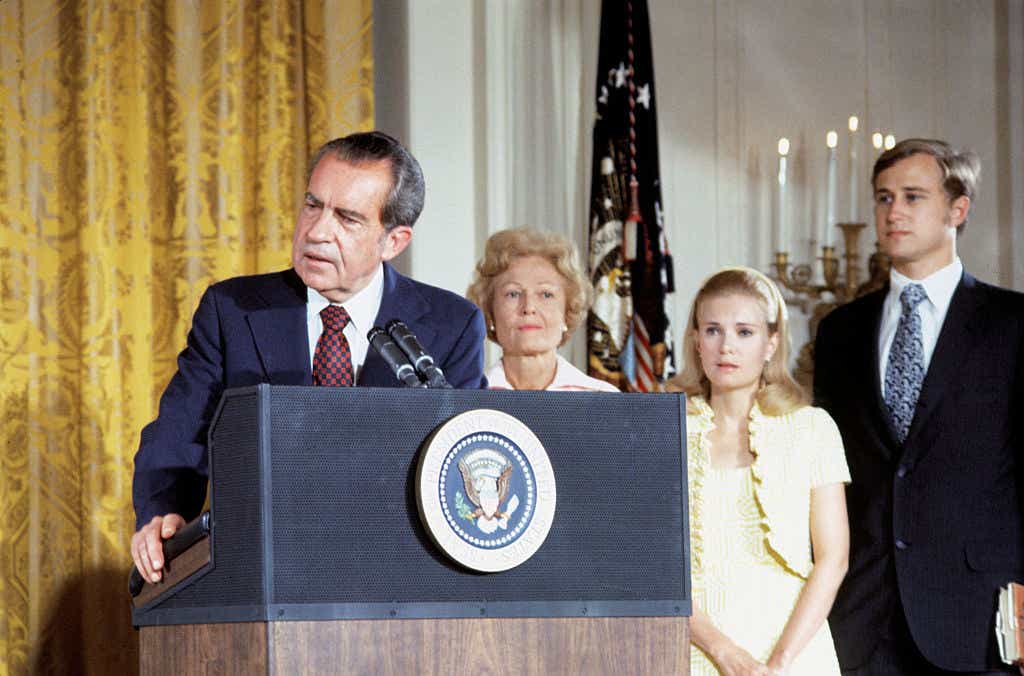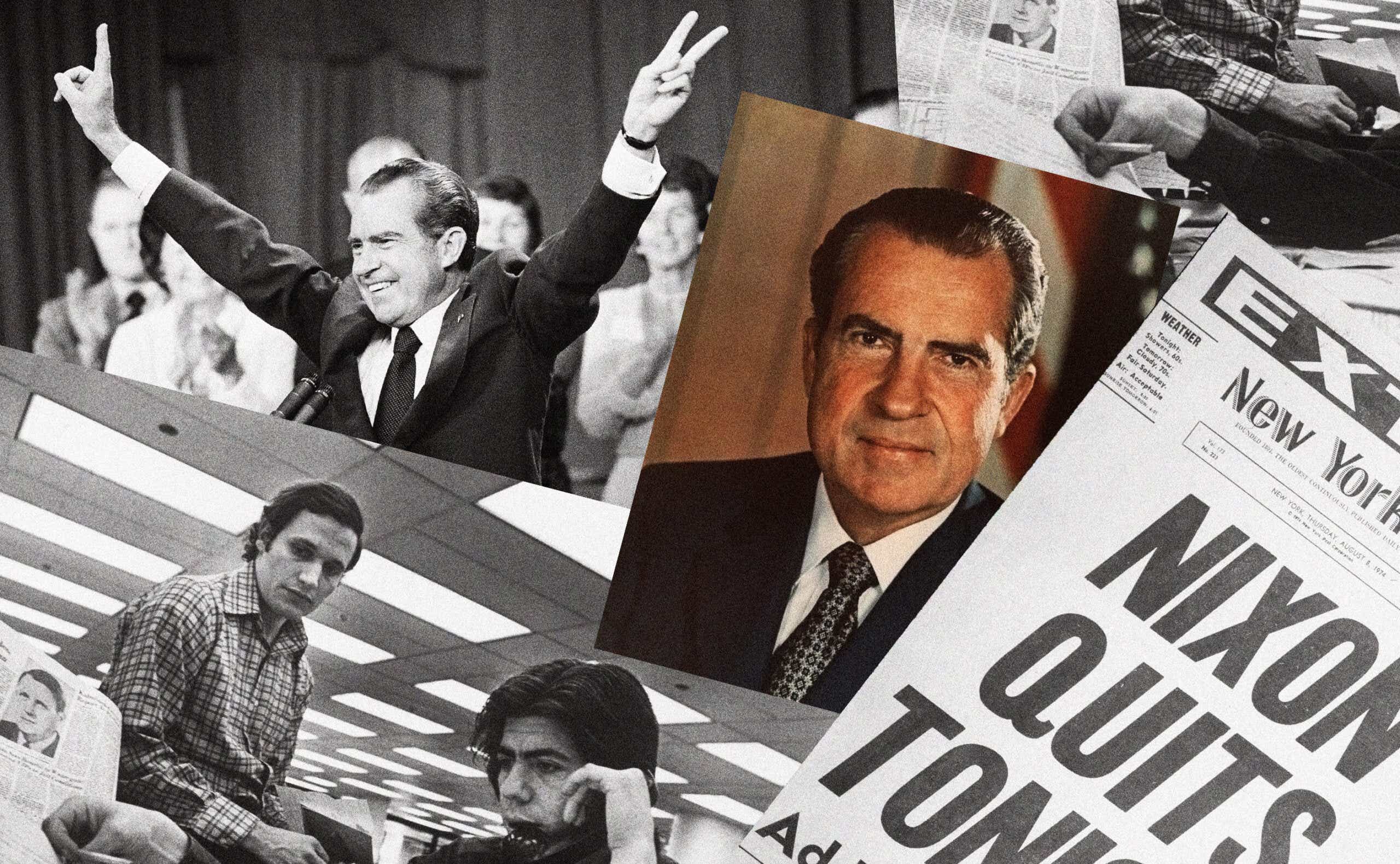It’s hard to believe that one of the most infamous political scandals in U.S. history involving a sitting president happened 50 years ago today.
On June 17, 1972, five men were caught attempting to bug (and steal documents from) the Democratic National Committee’s Watergate offices in Washington, D.C. Though there’s no conclusive indication that then-President Richard Nixon actively participated in the break-in, he did repeatedly try to cover up the crime, including instructing the Central Intelligence Agency (CIA) to impede the FBI’s investigation of the crime and paying thousands of dollars in hush money to co-conspirators. This is where we got the well-worn phrase, “it’s not the crime, it’s the cover-up.”
The drama would continue to unfold over the next two years before the House Judiciary Committee approved three articles of impeachment against Nixon, including obstruction of justice, abuse of power, and contempt of Congress. But Nixon ultimately resigned before he could actually be impeached or convicted. Some of his aides weren’t so lucky: Nixon’s closest aide, Chief of Staff H.R. Haldeman, among others went on to serve months-long prison sentences.
“Watergate is a story of a criminal and corrupt president,” says Garrett Graff, who’s a former editor at Politico and the author of Watergate: A New History, which was inspired by his coverage of the Trump administration. “It’s also the story in my mind of how American democracy works, and it’s a hopeful story of the system working.”
But Graff says the Watergate scandal points to a “much bigger and darker tale” than the one that’s been handed down to us through popular history and culture. “We misremember Watergate: It’s not an event,” Graff tells KCM. “It’s a mindset that permeates the entire Nixon administration campaigns.”
In fact, some of Nixon’s misdeeds have only come to light in recent years. Namely, in what has become known as the “Chennault Affair,” the then-presidential candidate and his campaign told the South Vietnamese to delay the opening of peace talks and claimed that they’d get a better deal after the 1968 election if Nixon won. Though this revelation was kept under wraps when he was elected, it would haunt Nixon throughout his presidency and caused him to be constantly looking over his shoulder.

But has the U.S. come a long way since the scandal? Graff believes “we’re still very much living in Watergate’s shadow,” particularly in relation to the House’s investigation into Trump’s actions and the events leading up to the deadly Capitol insurrection by many of his supporters.
“It’s impossible to escape the parallels at this moment between the Watergate hearings and Jan. 6 committee hearings, and thinking about how Congress goes about investigating a criminal and corrupt presidency,” says Graff. “That’s something that we’re obviously living through right now, which has a lot of implications and roots in Watergate.”
That’s because in many ways, according to Graff, the U.S. still is still having to reckon with the various precedents on presidential powers that were established by Nixon during Watergate. These have undoubtedly created some roadblocks for authorities when it comes to their investigations into Trump, such as his family’s business practices. Just last July, the Trump Organization was charged with helping executives avoid taxes by paying them with hidden benefits and bonuses.
“All of the battles that we’re now having with Trump over executive privilege were codified and created in the shadow of Watergate,” says Graff. “These had never existed prior to Richard Nixon getting the Supreme court to agree to executive privilege.”

Given that both administrations were plagued by scandals and investigations, it’s also hard not to draw comparisons between Nixon and Trump. But Graff believes in many ways that the fallout from Trump has been more damaging because it’s not inciting a similar hunger for reform that was seen in the wake of Nixon’s presidency.
“Donald Trump has exposed a number of faults and challenges to our political system and we should be seizing the opportunity to make a wide variety of reforms, to make sure that the way Donald Trump used the office is not possible again,” he tells us.
If anything, Graff hopes the 50th anniversary of Watergate will help remind Americans of the need to proactively protect our democracy, emphasizing that “so much had to work in order to force Richard Nixon from office, and to hold his abuses of power and criminal conspiracies to account.”
“What I hope people take away from Watergate this year,” says Graff, “is how fragile American democracy can be — and how important it is to elect leaders who are willing to protect it.”









